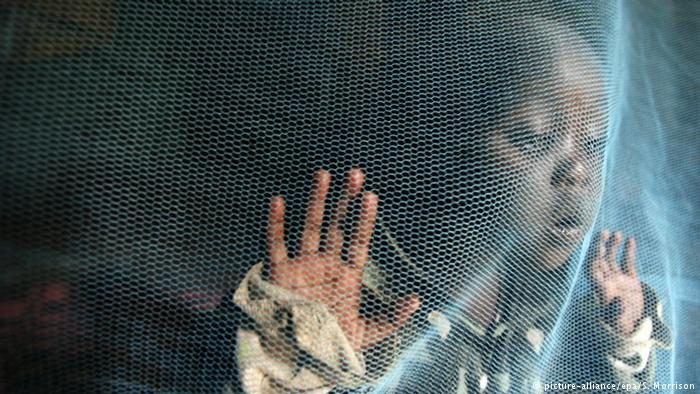
After steadily declining numbers of malaria cases and malaria deaths worldwide between 2000 and 2015, the World Health Organization (WHO) reports that 2016 recorded an increase in malaria cases and no change in the number of deaths from malaria. Close to a half a million people (445,000) still died as a result of malaria in 2016.
The public health success story of the fight against malaria appears to be unraveling for now in part because both the parasite and the mosquito that carries it are evolving by building resistance to antimalarial drugs and insecticides respectively.
Imagine the difference if your mosquito net poisons mosquitoes consistently as it should, and the antimalarial drug you take kills mosquitoes that bite you. It’s not as far-fetched as you think!

Staying one step ahead of malaria
Global estimates of a 41% reduction in malaria cases and 62% in malaria deaths over the previous fifteen years are mostly due to the increased use of Long-lasting Insecticide-treated bed nets (LLIN) and Indoor Residual Spraying (IRS) with insecticide.
There’s ample evidence now that mosquitoes in many malaria-endemic regions of Africa are resistant to insecticides commonly used in bed nets and for indoor residual spraying.
How do we fight back when mosquitoes find a way around LLINs and IRS, the twin pillars of malaria control in sub-Sahara Africa?
Drug and insecticide resistance is a fact of life in the push to eradicate malaria globally, so researchers worldwide work tirelessly to find alternative ways to deal with mosquitos and stay one step ahead.

Using an old drug in a new way to fight malaria
A new research trial from the Liverpool School of Tropical Medicine (LSTM) shows the enormous potential impact of combining an old drug, ivermectin, with a standard antimalarial drug to kill mosquitoes while also targeting the malaria parasite.
Ivermectin is a drug that is commonly used to treat other diseases caused by parasites such as river blindness, elephantiasis, scabies, and lice. For the first time, researchers are using it to prevent the spread of malaria.
The clinical trial in Kenya shows that treating people for 3 days with a combination of high doses of ivermectin, and the antimalarial drug dihydroartemisinin-piperaquine (DP) not only improves malaria symptoms but kills mosquitoes that feed on treated individuals for at least 28 days after treatment. The high dose of ivermectin makes blood poisonous to biting mosquitoes.
Using new chemicals and insecticides to beat back malaria
Researchers from the London School of Hygiene & Tropical Medicine (LSHTM) conducting a two-year clinical trial in an area of Tanzania with insecticide-resistant mosquitoes, made groundbreaking findings. They demonstrated that adding the chemical piperonyl butoxide (PBO) to standard insecticide-treated bed nets reduced the prevalence of malaria among children by almost half, compared to standard long-lasting insecticidal nets (LLIN) alone.
PBO works by blocking the mosquitoes’ ability to resist the pyrethroid insecticide used on bed nets so that the insecticide remains toxic to the mosquitoes. This is significant because pyrethroid insecticide is the only type of insecticide approved for use on bed nets by the WHO and the Anopheles mosquito that carries the malaria parasite is increasingly resistant to the insecticide.
In the same study by the LSHTM, a high level of malaria control was achieved with the use of the insecticide pirimiphos methyl for indoor residual spraying. Only one round of spraying reduced malaria infection by almost half (48%) for an entire year.
Lead Researcher Professor Mark Rowland from LSHTM said: “This project is a game-changer.”
As a result of the convincing outcomes of the trial, the WHO revised its recommendations on bed nets in September 2017, giving the go-ahead to the use of PBO Long-lasting Insecticide bed nets in areas where mosquitoes are resistant to insecticide.

Weapons you can use now to prevent malaria
Until the exciting new weapons in the battle against malaria become widely available, the wise thing to do is to prevent malaria by taking simple traditional measures that work well.
Here are some common sense malaria prevention tips for your family:
- The single most important thing to do to prevent malaria is to avoid being bitten by mosquitoes. Install mosquito netting in all windows and doorways.
- Use long-lasting insecticide-treated bed nets every night especially for children and if you’re pregnant.
- Eliminate potential breeding areas like stagnant pools of water by filling them with sand; keep your surroundings clear of empty containers and old tires that can collect water; keep water pots and storage containers covered at all times.
- In young children, malaria has a shorter course and can progress quite rapidly to severe malaria. Seek treatment for your young child within the first 24 hours of illness.
- Not all fever is malaria! Get tested before treatment.

